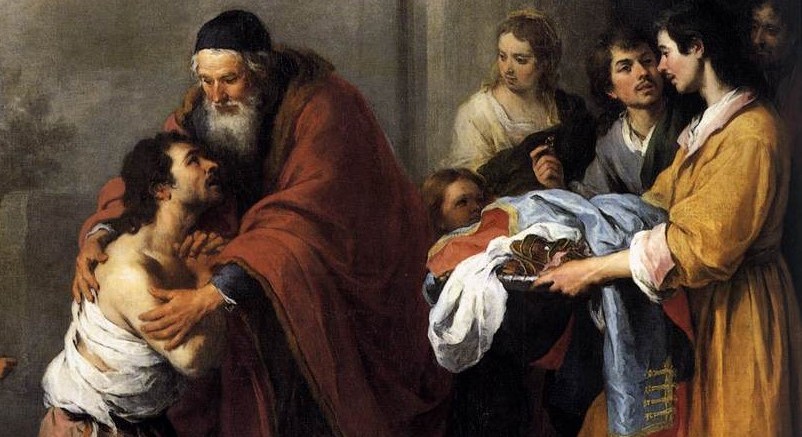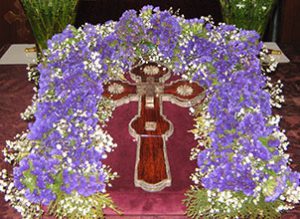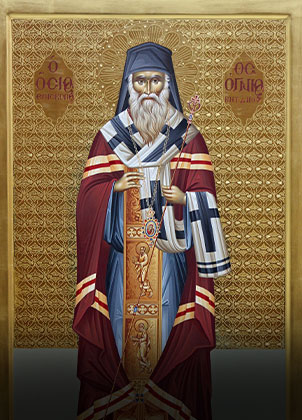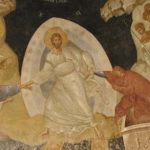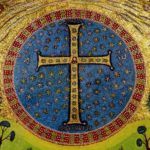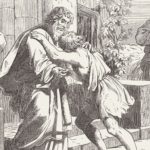In the name of the Father, and of the Son and of the Holy Spirit.
The Gospel parable of the Prodigal Son depicts a conversion of a sinner to God.
When the father met his repentant son, he made a magnificent feast: he fell on his son’s neck and kissed him… then he said to his servants, ‘Bring out the best robe and put it on him, and put a ring on his hand and sandals on his feet. And bring the fatted calf here and kill it, and let us eat and be merry.
The Lord, in order to attract a sinful soul to His love, gives it to feel a glimpse of heavenly joy, so that the soul, that always seeks unclean, earthly pleasures, may learn that there exist delights incomparably superior, higher, and more desirable, than those which the soul previously longed for.
In the parable of the Prodigal Son this is represented as a feast.
But let us think what happened afterwards. Apparently, after 2 or 3 days of celebrating the father sent his younger son to the field to work together with his older brother. And he spent the rest of his life working in his father’s field along with the hired servants.
At this point Christian life may appear as boring and dull routine. One may fall into despondency, recalling the time of his conversion, when his life in the Church was an endless spiritual feast.
However, such change is normal. This is the time of a trial; one is supposed to prove his faithfulness to God. If a son loves his father only as long as he receives gifts from him, this is not a true love. Love of God is tested by misfortunes.
Christian life doesn’t consist in delightful feelings. Christian life is a life-long persistent struggle with sin in our heart. Sin took root in our heart, penetrated it so deeply, that it became as a part of our nature. This is why struggle with sin is always painful and exhausting.
In the parable, the older son complains to his father: ‘Behold, these many years I have been serving you; I never transgressed your commandment at any time; and yet you never gave me a young goat, that I might make merry with my friends’.
St Paul compares Christian life to running in the arena. If we take up this comparison, Christian life is rather a marathon, than a sprint. The time of the race is our whole life.
Unfortunately, not all survive this time of trial and many fall away.
This equally concerns those who start monastic life. When someone comes to the monastery, he is usually burning with zeal; he surpasses others in prayer, labour and fasting. However, after a few years, a crisis may happen, and that person, not only loses his fervour, but sometimes even leaves monastic life altogether.
In the parable of the Sower, the Lord compares such people to the ones who received the seed on stony places. They hear the word and immediately receive it with joy; yet they have no root, they endure only for a while, and in time of temptation fall away.
As for those who received the seed on the good ground, the Lord says, that they “bear fruit with patience”. Here “patience” is the keyword.
All changes, both in the body and in the soul, need a long period of time in order to take place. A tall tree grows out of a little seed, likewise spiritual growth occurs slowly, gradually and imperceptibly.
What we should provide for this growth from ourselves is patience, resolution, persistence and resilience. The Holy Spirit will provide the rest.
Amen.

